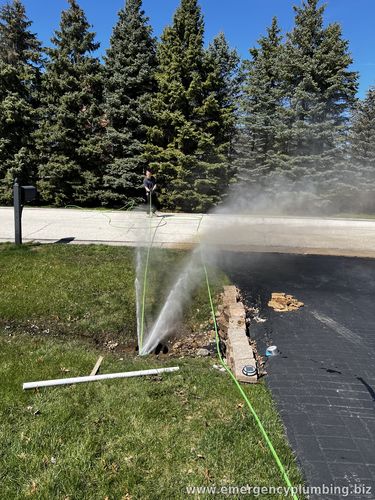Can hydro jetting prevent ingrown roots in pipes |
Hydro Jetting: The Key to Preventing Ingrown Roots in Pipes
When it comes to keeping your plumbing system free from blockages, one of the biggest threats is ingrown roots. Over time, tree roots can invade your pipes, seeking moisture and nutrients, causing clogs, cracks, and even serious damage to your plumbing. Fortunately, hydro jetting is a highly effective solution that can not only remove these roots but also prevent them from growing into your pipes in the future.
What is Hydro Jetting?
Hydro jetting is a process that uses highly pressurized water to clear blockages and thoroughly clean the interior of your pipes. Unlike traditional methods like snaking, which only punches through clogs, hydro jetting cleans the entire pipe surface, leaving it spotless. The intense water pressure eliminates debris, grease buildup, and, most importantly, those stubborn tree roots that can damage your system.
Why Regular Hydro Jetting is Essential ?
Tree roots are persistent. Once they find a way into your pipes, they can keep growing and expanding, leading to costly repairs if left unchecked. Scheduling regular hydro jetting services is the best way to: - Prevent Root Growth: By removing any early signs of root intrusion, hydro jetting stops roots from taking hold and growing deeper into your plumbing system. - Ensure Clear Pipes: Hydro jetting not only tackles roots but also removes other debris that could lead to slow drainage or blockages. - Extend the Lifespan of Your Pipes: Consistent cleaning helps protect your pipes from long-term damage caused by buildup and roots, ultimately saving you from expensive replacements.
How Often Should You Schedule Hydro Jetting?
While every plumbing system is unique, many experts recommend hydro jetting at least once a year, especially if you have large trees near your home. Regular maintenance ensures that your pipes stay clean and clear, preventing costly root damage down the line.
Protect Your Pipes Today Don't wait for ingrown roots to cause expensive plumbing problems. Contact us today to schedule your regular hydro jetting service and keep your plumbing system flowing smoothly!
|


Comments
Post a Comment